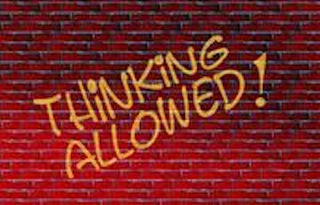Stress
Your Kids Can Beat Test Stress
How high-stakes tests limit brain power, and what to do about it.
Posted September 18, 2019
High-stakes standardized tests are not good for kids' brains, and their stressed brains are also not good for taking these tests.
Experiencing test stress, kids are not at their best for remembering things they even know well. Their highest cognitive skills, needed for optimal success, such as understanding questions clearly or making thoughtful choices are restricted by the brain’s stress state. In addition, the stress in anticipation of these tests reduces their effectiveness in studying, doing homework, being organized, staying focused, and further, interferes with sleep and mood.
What's happening in their stressed brains?
Neuroimaging research reveals that high-stress expectations or experiences disrupt the brain's learning acquisition and memory retrieval, such as on tests. The flow of information into and out of memory requires passage through an emotional switching station called the amygdala.
When in the high stress state, the amygdala restricts flow of information up to the prefrontal cortex to be stored in memory. Similarly, in this hyperactive amygdala stress state, there is reduced access to retrieve the information stored in memory. Also in the prefrontal cortex are the control systems that direct the rest of the brain for emotional self-regulation, thoughtful decision making, and judgment. The lower brain, without these “top-down” controls takes over influencing the individual’s response. This results in a narrow sets of behavior responses, similar to the survival-oriented lower brains of other mammals: fight, flight, or freeze. This emotional state lowers access to memory, highest thinking, and emotional self-control needed to evaluate test questions and form accurate and thoughtful responses.
In a neutral state, without high stress, when children are comfortable and confident in their abilities to do their best, the amygdala can be open to storing and retrieving memories and sending down guidance from the thoughtful control centers in the prefrontal cortex.

Help Your Children Build Self-Awareness to Reduce Test Stress
Help your children build self-regulation strategies of emotional self-awareness. The goal is awareness of the signs that indicate rising stress or anxiety. The first part of test-destress, then, is to recognize signs of stress-overactivation in their brains. These can include feeling out of control, physical signs of increased perspiration, rapid heartbeat, or the sense of being overwhelmed or dizzy.
Knowing what these feelings mean is half the battle. Understanding that others also feel this way and that there are things they can do about it boosts their willingness to sustain effort. Guiding them (or participating with them) in mindful stress responses, calming visualizations, positive thoughts, or relaxing breathing provides tools for self-management. If they have practiced these destressing strategies, they can pre-emptively activate them when they recognize that their stress response is building, before the amygdala blockade takes over. Because of the brain's neuroplasticity, each time you guide children to recognize, name, predict, and consider interventions for their test stress, you help them build stronger neural circuitry. This both increases their awareness o,f and the practiced interventions for, these stress producers.

Reduce Negative Expectations
Many tests don’t allow children to show what they know by putting excessive emphasis on single rote memorized facts inadequately reflecting real understanding. Many high-stakes standardized tests don’t accurately assess what they know, but rather numerically compare test takers to other test takers. This system does not reveal who knew and understood the most, but rather which test takers had the mental calmness to easily remember and clearly use what they studied.
The pressures are enormous. A most valuable lesson and encouragement you can offer is explaining to your children that they often know much more than is reflected on these test scores and that building stress resilience will help them do their best.

Test-Day Tips
Have children consider the ways they may sabotage their test success. In preparation for tests guide children to look for patterns of their most frequent types of errors. What are the reasons they get answers wrong, even when they know the information? Have them keep this list at home and in mind. If permitted, at the start of the test, they can write cue word reminders of the past errors they want to avoid. It also helps if you encourage them to recognize and record their progress at making fewer of these types of errors.
Examples of the past errors:
- Not looking carefully at what is asked.
- Prematurely selecting an answer without reviewing all the options.
- Not using estimation to see if a math answer is reasonable.
- Forgetting to check that their "fill in the bubble" answers are in the place corresponding the question number.
Examples of self-reminders:
- Look carefully at what is asked.
- Make a note of questions to go back to after finishing the ones they know.
- Look for clues to the unknown questions in the subsequent test questions themselves.
- Review all options before selecting the "best" one.
- Use estimation to see if a math answer is reasonable.
- Periodically check that fill-in-the-bubble answers are in the place corresponding the question number.
Conclusions
- One's emotional state of mind strongly impacts learning in general and test taking success.
- Even the most challenging tests can be opportunities for your children to show what they know, rather than set-ups for stress to reduce their focus, confidence, and memory.
- Help kids recognize and prepare for their best mental state with guidance to build their emotional awareness and self-regulation so they can be in charge of how their brains can both recognize respond better to test-stress.
- You’ll see beyond increased test success they display confidence in using their practiced emotional self-regulation skills on their many future encounters with stressful situations.




